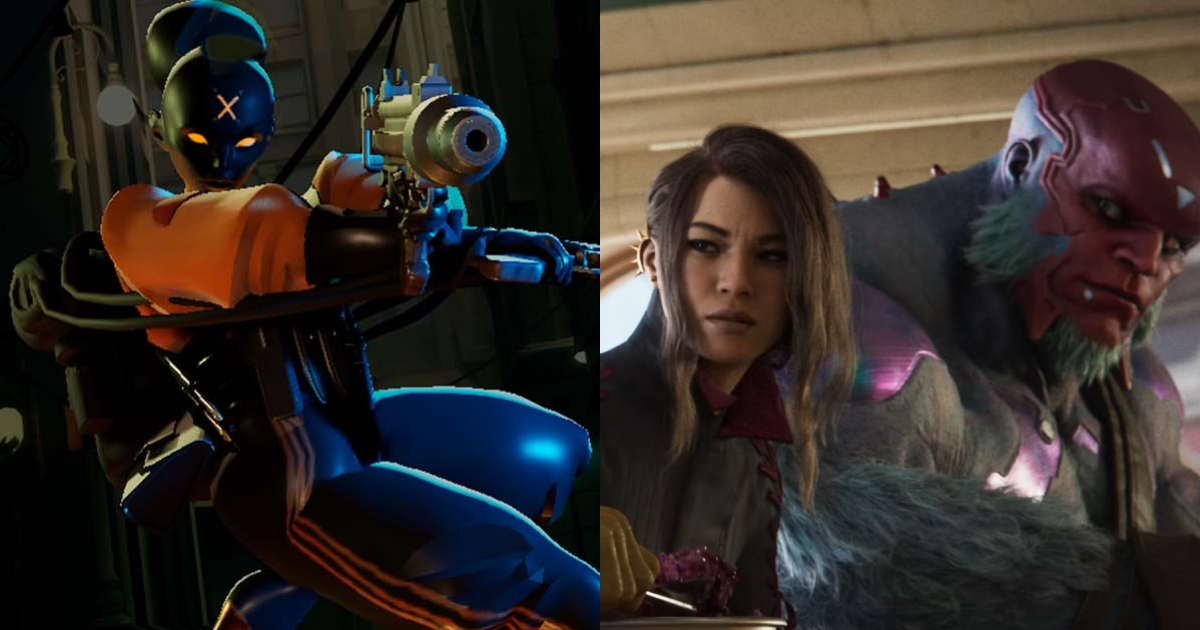The failure and quick death of Concord has spawned a lot of debate on the current state of live service games. Former BioWare producer Mark Darrah shares his thoughts on the matter and what drives the decisions Sony and other large corporations.

Deadlock (left), Concord (right)
“Do or die” vs. a zero-sum game
In a new YouTube video titled “Are Live Services Dying Faster?”, Darrah touched on the differences in math, approach, and development between various live service projects.
A lot of online games in the past, including early mobile titles, were made by independent or semi-independent studios. When you don’t have infinite money or backing of a larger company, you have to take a do or die approach.
“The games came out, they hit as well as they did, and then the studio invested months or sometimes even years into fixing the service and making it start to chug along and work better and better until some of these things became juggernauts,” Darrah explained.
Sometimes this happens with games made within larger organizations — e.g. Final Fantasy XIV, which initially flopped at launch but was remade and turned into a successful, long-running MMORPG. Another example of a major company trying to fix its live service project is Fallout 76, which (like FFXIV) was based on a popular IP.
However, corporations rarely have such thing as “do or die” — on the contrary, there is always a fight for money and people between its various studios and divisions.
To some degree, a lot of times it's a zero-sum game. One game is fighting over resources with another game, so when one game has a problem that can very quickly spiral into that studio losing control of its people. As these larger organizations become more interconnected, as people work on more things across a wider array of studios, I think that's going to actually become more and more common. Former executive producer at BioWare
Market saturation and dart-throwing
Large companies tend to abandon not only commercially flopped projects, but even those that did relatively ok. When a small indie team has a game that allows them to continue to support it further and pay salaries, they may be happy with, say, a 10% ROI. But corporations want much higher returns, so being ok is usually not enough for a project to survive. The opportunity cost of supporting a mildly successful live service game seems irrational to such organizations.
Concord being shut two weeks after its launch is just an extreme example of this situation. Not only did it obviously flopped, but it also had nothing to offer to players. In a saturated market, the game should have something that will set it apart from the already existing juggernauts in the genre. Concord didn’t have any hook, unique feature, aesthetic, or anything else to grab the attention of players and try to dethrone one of the kings.
If you're the only player in town, people who really want that kind of game are going to stick around for longer in the hopes that you will turn this experience into something that they will enjoy. But if you're making a competitor to Destiny and it doesn't immediately grab them, why won't they just go back to Destiny? In a saturated market, not only do you need to stand apart, you also need to launch strongly enough to be sticky enough to hold on to people. Former executive producer at BioWare
Concord’s failure won’t make Sony abandon its live service strategy. The company will continue to “throw more darts” at the board in the hopes of winning big, because even a small chance of hitting the jackpot and adding a game with potentially endless revenue streams is too tempting. We may also see more failed or okay-ish projects shut down faster.
At the same time, Darrah believes that there is a growing realization among major companies that they don’t necessarily need to have so many live services. That’s why they are slowly starting to get back to traditional game publishing, investing in completed single-player projects that “designed to be games as opposed to hobbies.”
“I think a return to traditional video games is great for the industry,” Darrah said, calling the live service path “very destructive” and adding that “we’re moving into overall a more healthy space.”
Deadlock is a counterexample to Concord
Darrah thinks that Deadlock is being developed in the same way that live services have been developed in the past. Valve kept its new MOBA shooter under wraps for some time, slowly building its player base and making the alpha version invite-only. It is similar to what the company did with Dota 2 back in the day.
This approach allowed the company to build an engaged community around Deadlock and work with live feedback from early adopters to “slowly strengthen [the game’s] underlying mechanics, so that eventually it will come out and should come out relatively strongly.” As a result, the game’s player count is gradually going up, as opposed to Concord and many other live services made within larger organizations.
I don't know that the big publishers are prepared to work that way. Releasing games in earlier states, working with a small community, and slowly growing over time is a much more vulnerable way to develop. You're exposing yourself a lot more a lot earlier. But I do think that if we want to have a greater chance of succeeding with a live service, it's a much better way to go. Former executive producer at BioWare
Valve started sending invites to the closed alpha of Deadlock earlier this year, with the then-unannounced game peaking at nearly 2,700 concurrent players in July. For comparison, Concord’s open beta attracted less than 2,400 CCU on Steam, with its full version peaking at just 697 CCU at launch.
According to VG Insights, Deadlock generated over 860k wishlists in the four days after its Steam page went live in August. Its playtest continues to attract hundreds of thousands of players daily, with a peak CCU of 171.4k.

